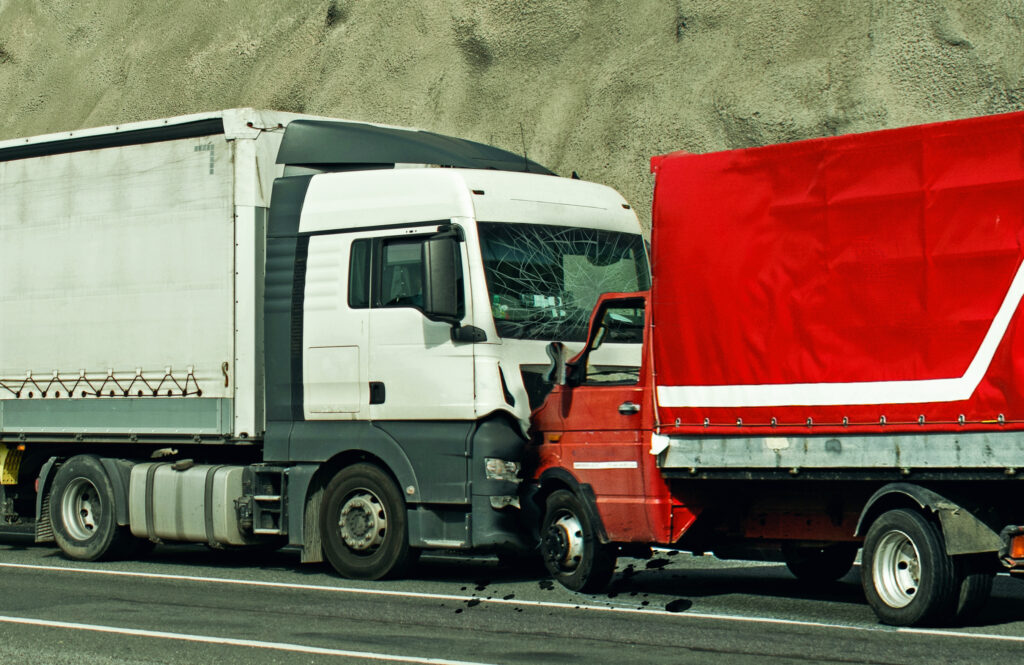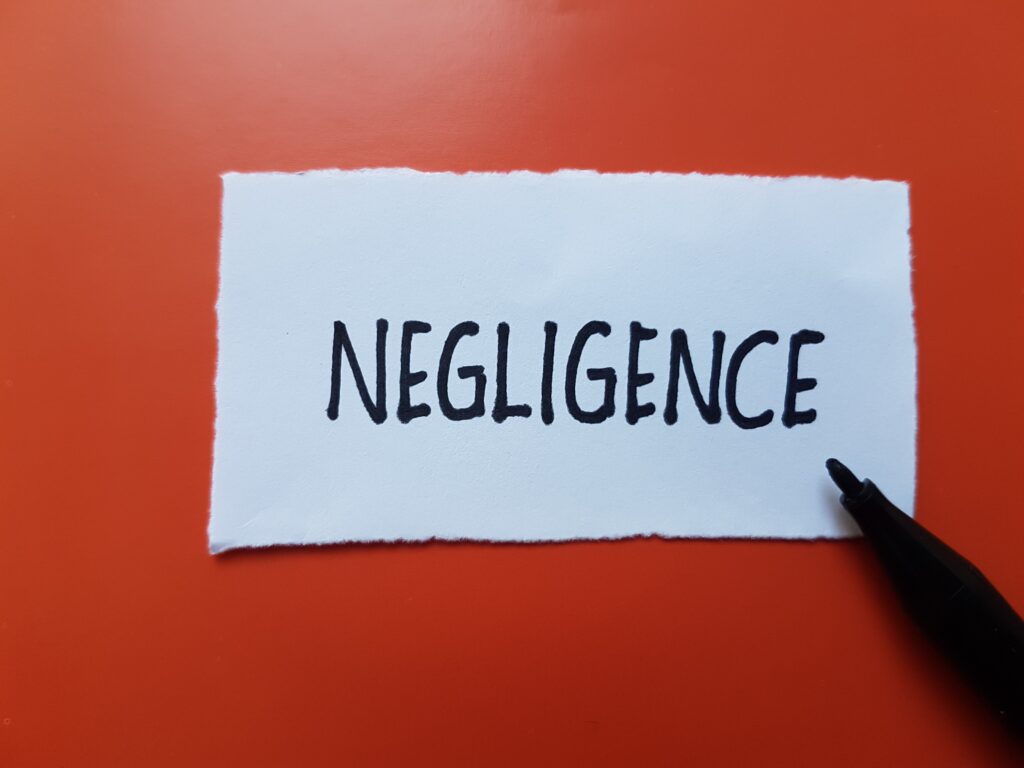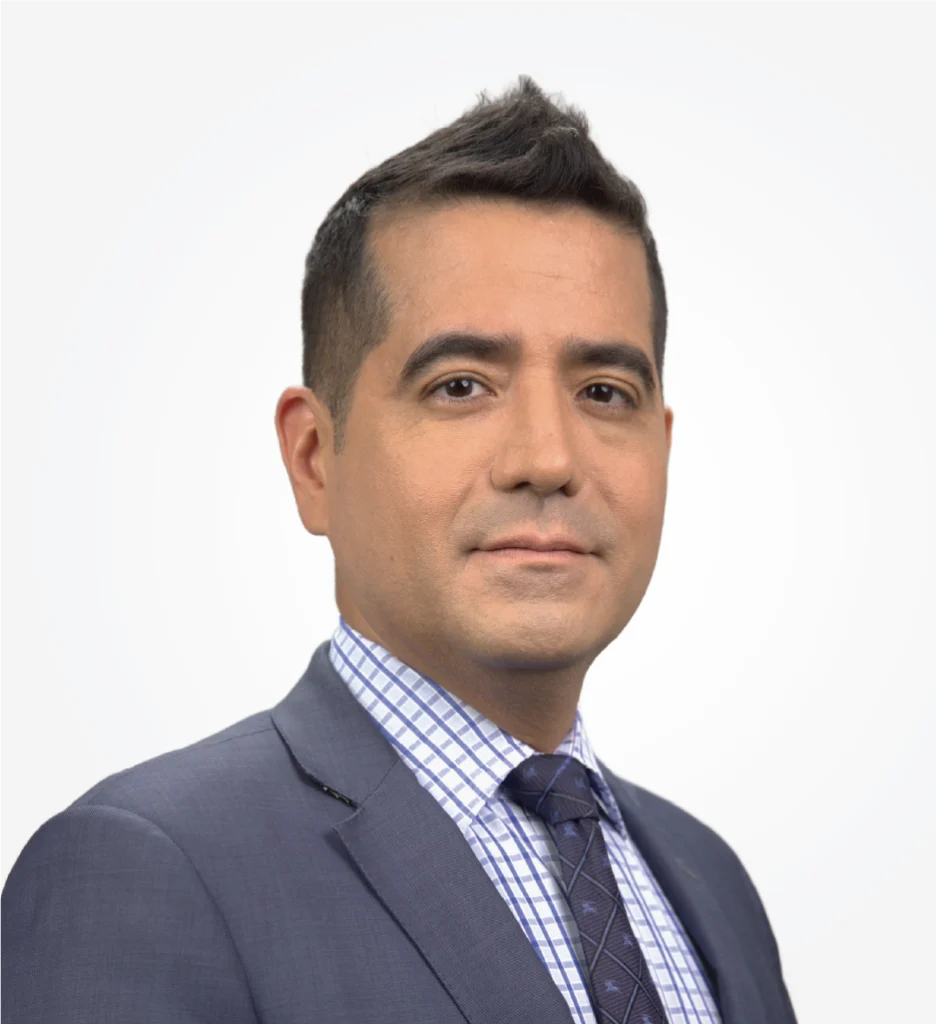After the initial shock of a truck collision wears thin and the magnitude of the crash hits, you may begin wondering—how can a truck accident lawyer help me? Most truck accidents are resolved through an insurance claims process. However, some more challenging cases require litigation. To determine the merits of your case, contact a Fairfax truck accident lawyer to assess your accident. You'll want to uncover the best legal action to recover financial compensation for your losses.
What Makes Truck Accidents Different From Other Accidents?
Truck accidents differ from other motor vehicle collisions primarily due to their significantly bigger size and weight. The drastic size and weight differences between large trucks and standard-sized vehicles lead to the potential for more severe injuries and fatalities when they collide. Critical differences between truck accidents and motor vehicle crashes include:
- The severity of the impact and injuries
- Large truck maneuvering issues
- Blind spots that make it more challenging to see motorists in smaller vehicles
- Improper cargo loading and securing issues
- Large trucks operate under Federal Motor Carrier Safety Administration (FMCSA) regulations
Truck accidents are often more complex and can involve multiple liable parties. Therefore, the need for an experienced truck accident lawyer is generally more urgent. State jurisdiction imposes statute limitations on filing and processing truck accident claims and lawsuits. Don't delay contacting an attorney.
How Can a Truck Accident Lawyer Help After a Collision?

Your number one priority after a truck accident is to focus on your rest and recovery. But you can't do that if you're trying to navigate the insurance claims process and understand the legal system to ensure compensation for your case.
Hiring a truck accident lawyer to help after a collision provides sound peace of mind. It also allows you to make and maintain all healthcare appointments and do at-home care, like physical therapy exercises you're prescribed to perform daily for proper recovery.
Additional ways a truck accident attorney helps include protecting you from insurance companies, unraveling complex liability, proving negligence, securing evidence, reconstructing your accident, consulting experts, assessing damages, and negotiating claims. If claims cannot be resolved, your attorney may file a truck accident lawsuit and handle appeals when applicable.
Protecting You From Insurance Companies
Insurance companies can be ruthless about settling claims quickly and for less than they're worth. They employ claims adjusters to find ways to minimize their company losses. An insurance claims adjuster will call, sounding like a concerned friend after your accident.
However, the truth is they are aiming to get you to say anything they can use to dismiss partial or total liability for your truck accident claim. Examples of insurance tactics having an attorney will protect you against are as follows:
- Denying your valid truck accident claim
- Unreasonably delaying your truck accident claim
- Claiming your injuries are pre-existing
- Downplaying the severity of your injuries
- Sending lowball first settlement offers
- Refusing to adjust their settlement offer to a reasonable amount
Another standard insurance tactic is pressuring you for a recorded statement immediately after the accident and before your injuries have fully impacted you. The goal is to get you to say anything they can twist to deny liability.
For example, they will ask you how you feel and about the severity of your injuries. However, if they call you on day one of the accident, you might say you feel fine, not knowing that on day three, whiplash is going to set in and cause you considerable discomfort and pain. They know this and plan for it. Once you’ve submitted an “I’m fine” statement, they can use it as evidence to downplay your injuries or claim fraud.
You are not obligated to give recorded statements to insurance companies and are advised not to. If you have already provided a recorded statement to liable insurers, it's prudent that you contact a truck accident attorney immediately. They will advise you on what to expect, what to do, and what not to do next.
Unraveling Complex Liability
Truck accidents tend to be more complex because they often involve multiple parties of liability. It is important to investigate all possible parties to ensure maximum compensation for your injuries and damages. Liable parties in a truck accident frequently involve:
- Truck Drivers: The leading cause of truck crashes is truck driver error or negligence. Common driver errors include speeding, driver fatigue, and driving drunk or impaired by over-the-counter medications, prescription medications, or illicit drugs.
- Trucking Companies: Truck companies are liable for collisions due to poor hiring practices, inadequate training, and failure to inspect and maintain trucks. However, vicarious liability is a legal doctrine that holds employers responsible for their employee's negligent actions while on duty. So, even if the accident was not a direct cause of the trucking company's negligence, they may still be liable for damages.
- Cargo Loaders and Companies: Improper cargo loading and securing can lead to dangerous cargo shifts, resulting in rollover accidents and hazardous spills. If improper cargo is the cause of a truck accident, the cargo loader and the cargo company may be liable for damages after a crash.
- Truck and Parts Manufacturers: Defective trucks and vehicle parts can cause dangerous and fatal truck accidents. If a defect in the truck design or a part defect is found to cause a collision, the truck or vehicle part's manufacturer may be liable.
- Truck Maintenance Providers: If a failure to properly maintain a truck, such as faulty brakes or steering, is determined to cause a truck accident, the maintenance provider may be liable. Liability may fall on a negligent mechanic and the shop providing the services.
- Municipalities: When dangerous road conditions, such as uneven pavement, large potholes, missing signage, and debris in the road, cause a truck accident, state and federal government agencies may be liable for your injuries and damages. When municipalities are liable, cases are more challenging to prove and require an experienced attorney to navigate the claims process.
When more than one party is at fault, they like to negate liability by pointing fingers at other liable parties. Unfortunately, this can complicate and slow down the claims process. An experienced truck accident lawyer can sometimes help expedite the process. Ask your attorney to clarify the anticipated timeline of your claim.
Proving Negligence
To secure compensation for your injuries and damages following a truck accident, you must first prove another person was negligent, resulting in the crash. Proving negligence in a truck accident requires you to establish the four elements of negligence in tort law: duty of care, breach of duty, causation, and damage:

- Owed Duty of Care—the truck driver had a legal duty of care to operate their vehicle safely, including following traffic laws and maintaining their focus on driving and the road ahead.
- Breach of Duty—the trucker breached the duty by driving negligently, like speeding, tailgating, ignoring traffic signals, making improper lane changes, or driving drunk, impaired, or distracted driving.
- Causation—the trucker's negligent actions were the direct cause of the truck accident and your subsequent injuries.
- Damages—the injured party (you) suffered actual damages from the truck accident, including medical bills, lost earnings, property damages, and pain and suffering.
Your lawyer will establish the four elements of negligence against all liable parties in your injury claim from the evidence collected and analyzed during their investigation. They will do this by presenting the evidence clearly and concisely for liable insurers, as well as judges and juries for truck accident cases requiring trial.
Securing and Preserving Evidence
The evidence in a truck accident is typically more involved than other motor vehicle accidents, primarily because of the amount of evidence to gather, preserve, and analyze. In addition to standard evidence, such as police reports, photos of vehicle damage and accident scenes, and video footage from traffic lights and dashcams, truck accident evidence also entails:
- The truck's black box or event data recorder (EDR)
- The truck’s GPS recordings
- The truck driver's driving logs—to look for hours of service violations
- The truck driver's employment records
- The truck driver's cell phone records
- The truck maintenance and repair records
- The truck's pre-trip and post-trip inspection reports
- The trucking company's dispatch records
- The trucking company's drug test policies
- The truck driver's toxicology report
- Freight or cargo manifests
The length of your investigation is directly affected by the amount of evidence your lawyer must analyze to determine all liable parties, prove negligence, and establish damages resulting from your collision.
Any evidence you have should be given to your attorney when you hire them. For example, if you took photos or video of the accident scene and injuries, medical bills, vehicle-repair notices, and lost income statements.
You must also sign a medical record release for your truck accident attorney to help. Do not authorize a medical record release to liable insurers. They will use them to find ways to dismiss your symptoms as pre-existing conditions. If you've already released your medical records to the insurance company, speak to an attorney immediately.
Reconstructing Your Truck Accident
Working with truck accident reconstruction specialists to recreate the circumstances of your truck accident is a vital part of investigating liability. Truck accident reconstruction is a scientific process that uses evidence to recreate the events of a crash. The process helps determine vehicle speed at the time of impact, braking distances, and the actions of all drivers involved. Their expert testimony is invaluable when proving negligence.
Consulting Experts
To prove negligence, the extent of your injuries, and damages, your lawyer will consult experts from various fields relating to your accident and injuries. Their network of experts may include healthcare professionals, life care planners, economists, engineers, and vehicle safety and highway safety experts. Expert witness testimony helps build a solid foundation for your case, cement liability, and ensure maximum compensation for your damages.
Assessing Damages
Assessing damages after a truck accident means calculating the total loss of your economic damages and determining a monetary value for your pain and suffering. Standard damages you may recover compensation for in a truck accident are as follows:
- All Healthcare Costs—including ambulance, emergency care, surgeries, hospital stays, primary care, mental health services, rehabilitation, and future medical expenses
- Disability Damages—including compensation for loss of limb, hearing or vision loss, cognitive issues from traumatic brain injuries, paralysis, chronic pain, requiring the use of assistive devices, and costs of devices.
- Property Damages—including vehicle damages or replacement, smartphones, glasses, sunglasses, car seats, safety gear like helmets, and property damages to mailboxes, fences, and structures.
- Lost Earnings—including salary, overtime, commissions, medical benefits, retirement, vacation time, sick leave, and diminished or lost earning capacity.
- Pain and Suffering—physical pain, mental suffering, sleep loss, psychological trauma, permanent impairment, loss of companionship and society, and decreased quality of life.
- Wrongful Death—final arrangement and medical costs, loss of financial support and future earnings, loss of consortium, the lost prospect of inheritance, and loss of parental guidance.
Proving damages means providing copies of billing statements, vehicle repair or replacement invoices, receipts for out-of-pocket expenses, pay stubs, income loss statements, tax returns, and other documents demonstrating financial loss. Pain and suffering are proven with detailed medical records, expert testimony, and pain journals kept by injured parties.
Negotiating Insurance Claims
Insurance companies are notorious for starting small before negotiating larger settlements. They bank on injured parties, rushing to settle to alleviate the financial burden of medical bills and income losses. Never accept the first offer.
A competent and confident truck accident lawyer will help by negotiating fair compensation for your injuries and subsequent damages. Negotiations can take time and involve multiple exchanges before liable insurers agree to settlement terms.
After your attorney and insurance companies agree, they will compensate your claim. Your lawyer will collect their contingency fee, pay any medical liens on your settlement, and issue you a check for the remaining balance.
Filing Lawsuits

When truck accident lawyers and liable insurance companies cannot agree on a settlement or insurers refuse to pay on a valid claim, your lawyer may file a civil lawsuit to recover your damages. Litigation can add considerable time and costs to your claim, which insurance companies and attorneys want to avoid. Most truck accident claims are settled without lawsuits.
Handling Appeals
If the insurance company denies your claim, you have a right to appeal. Bring your denial letter to your free case evaluation with a truck accident lawyer. They will review it and ensure you understand it before moving forward with appeals when applicable.
Consult a Truck Accident Lawyer to Help
You don't have to do this alone. Schedule a free consultation with an experienced Fairfax personal injury lawyer. They'll help you strategize how to recover financial compensation for your losses before it’s too late.
